Will Richland school officials face recall over a COVID mask vote? The latest news
A pivotal decision will be made next month in the effort to remove three Richland School Board members from office for voting to defy Washington’s indoor mask mandate.
Feb. 9 is when nine Washington Supreme Court justices plan to meet in a close-door session in Olympia to weigh in on whether or not multiple charges levied against the trio meet the state’s standard for a recall.
If they do, then recall supporters can start collecting signatures to put the question this year to Richland School District voters.
No oral arguments will be given and the decision will be made by a majority-vote of the justices who will then issue their opinion in writing, a court spokesperson said.
It’s the latest development in a months-long effort by a group of high-profile Richland taxpayers to oust the three board members — Semi Bird, Audra Byrd and Kari Williams — who voted to defy the state’s indoor mask mandate nearly 11 months ago.
Last May, a Benton County Superior Court judge found four charges to be “factually and legally sufficient” to move forward in the process, but an appeal to Washington state’s highest court was filed by the trio soon after.
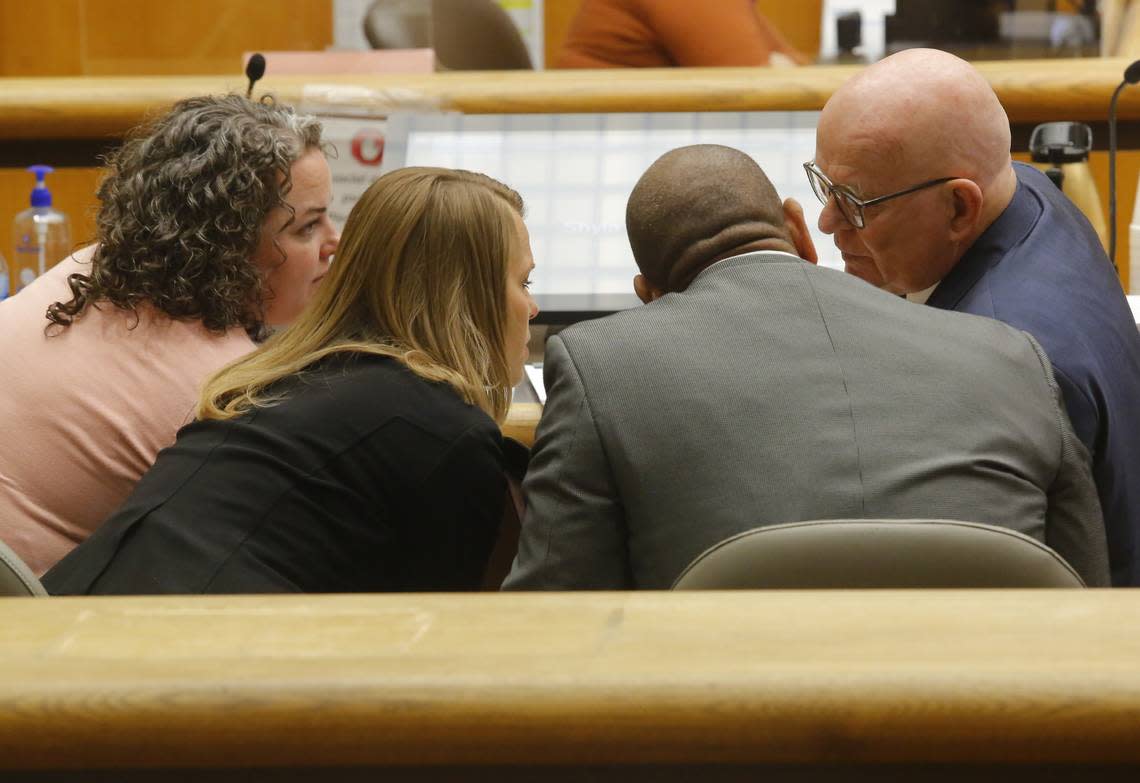
A decision is not guaranteed on Feb. 9, and it’s possible the justices could request additional evidence or information.
Both sides have already filed their opening briefs and other court documents with the court.
Williams told the Tri-City Herald this week that the recall has been an afterthought for them.
“I think right now, I’m just focused and so excited about the progress that we’re moving toward,” she said. “I’m really not focused on this recall. I’m focused on our work, these kids and doing things that are going to benefit them academically and their mental health.”
Mask-optional vote
In August 2021, Gov. Jay Inslee reinstated an indoor-mask mandate just as the Delta variant brought about the latest wave of COVID-19 infections and hospitalizations.
Students, teachers and staff around Washington state began class that fall with health measures in place, including face masks, testing and a timetable to vaccinate all teachers and staff.
The Omicron wave that winter was so bad that more than 1,200 cases were reported in one day alone in the Tri-Cities, and it spread to thousands of students and clogged hospitals and ventilators.
Bird and Byrd were elected to the Richland board in November 2021 as part of a wave of conservative candidates upset over the issue of Critical Race Theory, COVID vaccines and face masks.
Byrd attempted to pass a measure at a Feb. 8 meeting to “stop enforcing the mask mandate.”
The motion ultimately failed without support from any other board member. But it caught the empathetic ears of Bird and Williams — as well as the attention of Superintendent Chris Reykdal.
Two days later, Reykdal sent an email to all Washington school board members and superintendents explaining it would be a “willful violation of the law to enact board policy or explicit practices that remove masking or allow for noncompliance within your buildings.”
He added he was “hopeful” the statewide mask mandate would be rescinded soon, that he was speaking with Inslee about it, and that the state was “very close” to ending its mandate.
On Feb. 12, Bird texted Williams that he thought they should move forward with the motion.
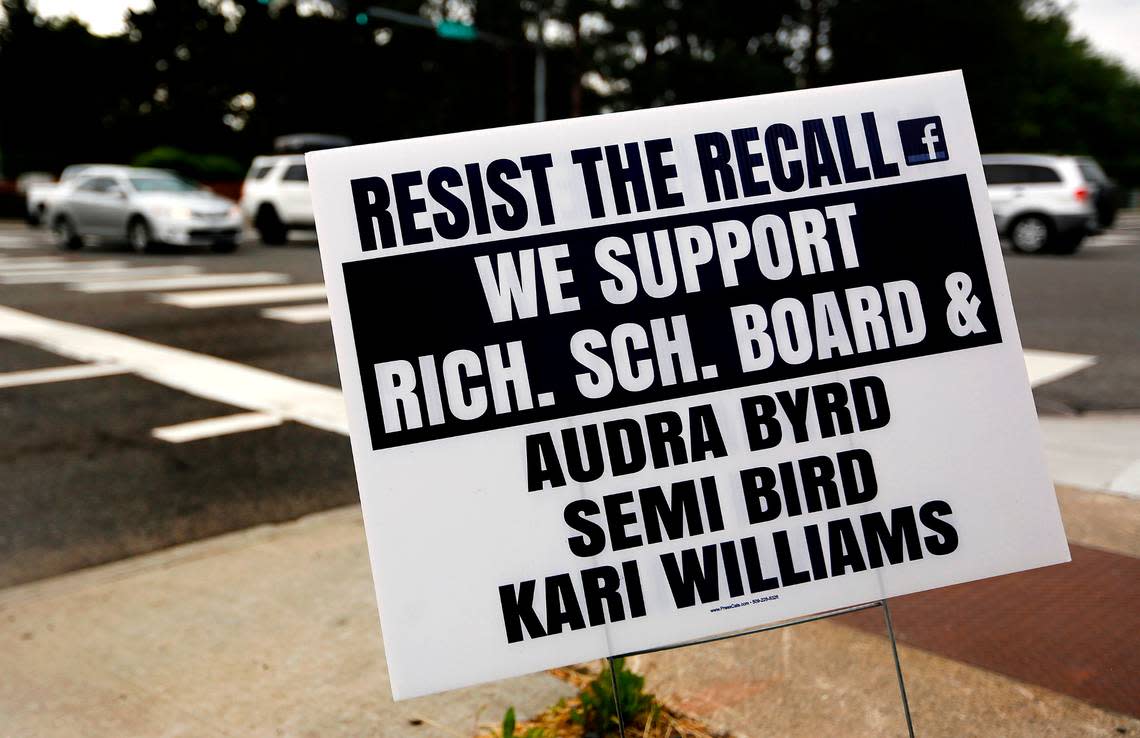
At a special meeting on Feb. 15 — following a lengthy executive session — the Richland School Board approved a surprise, split vote to “go to mask choice.”
The vote forced Superintendent Shelley Redinger to close schools for two days while district leadership considered the legal ramifications.
Richland was joined by a few other school boards in Washington — including Kettle Falls, Kittitas, Colville and North River — who had also voted to go mask optional around that time.
All eventually reversed course or temporarily moved teaching to online.
Inslee ended the indoor mask mandate on March 12, just as infection rates hit record lows.
Shortly after Richland’s mask-optional vote, Arthur West, an Olympia-based open government advocate, sued the Richland School Board and the district. He claimed the trio broke state law due to the ambiguous nature of the special meeting’s agenda item — “Resolution No. 940 - Local Control.”
West said the item looked like a “stealth agenda item.”
The district eventually settled the suit for $5,000 and a stipulation that the board members would undergo more Open Public Meetings Act training. A judge never ruled on the allegations.
What is a recall?
The ability for voters to remove elected officials from office is part of the Washington State Constitution and state law. The statute applies to both local and state public officials.
Voters first gather a list of charges — misfeasances, malfeasances and violations to their oath of office — and submit them as a petition to their local auditor’s office.
From there, the local prosecutor revises the charges in a ballot synopsis to be reviewed by a Superior Court judge at a hearing. The judge then considers whether or not the charges are factually sufficient and meet the state’s standard for recall.
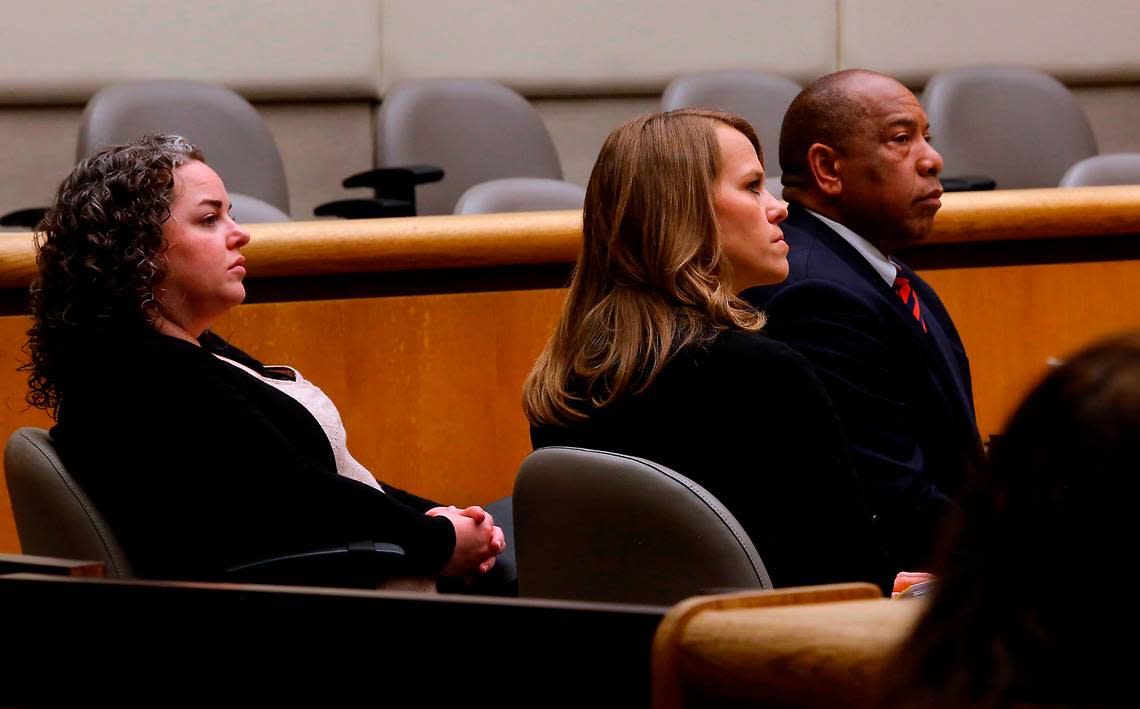
Elected officials have the right to request the state Supreme Court review the judge’s order, effectively appealing the decision.
If one or more charges are sufficient, petitioners are granted 180 days to gather enough signatures to put the issue on a ballot.
Depending on the timeline, a special election may need to be called.
What are the charges?
Four identical charges are being levied against the three school board members. They claim they:
Violated the Open Public Meetings Act by voting at a special meeting taking final action on a matter, to wit: masking optional, that had not been included in the published public meeting agenda.
Voted to make masks at school optional, in knowing violation of the law and in excess of the powers of a school board, even after warnings from the state and from legal counsel. Violated the district code of ethics by failing to: (1) uphold all laws, rules and regulations, and/or (2) use legal and ethical procedures; and/or (3) ensure schools are well run; and/or (4) consult those affected by changes in policy. Violated district policies and procedures by failing to assure compliance with law and policy.
Case against recall
Bird, Byrd and Williams argue the charges should be thrown out because they say their school superintendent — not the board — is responsible for drafting the agenda for that special meeting.
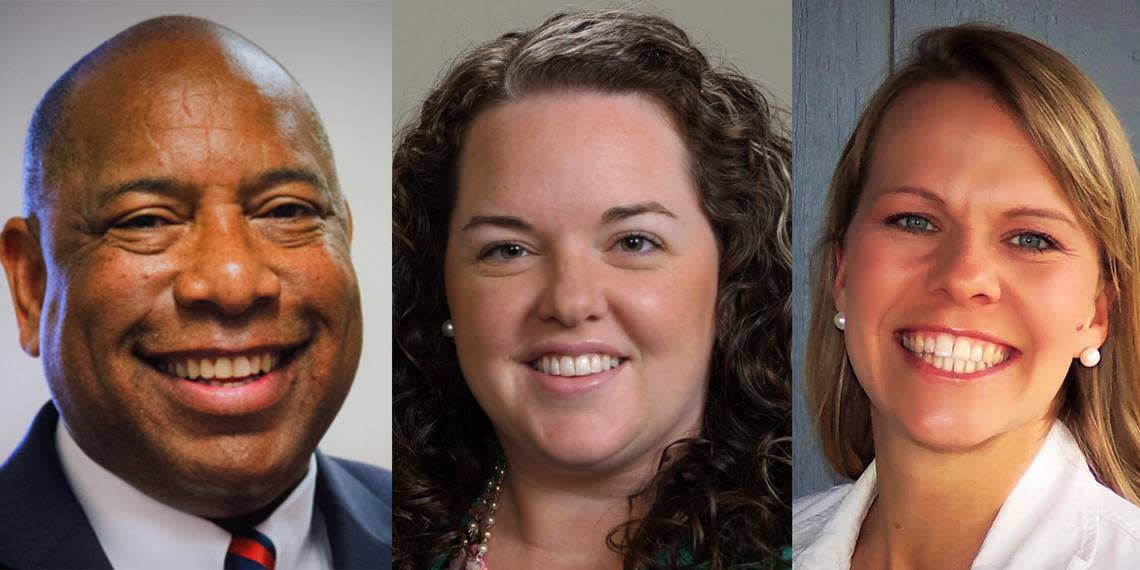
Also, they argue the board was under the assumption at the time that they had the legal authority to make health decisions and that violating district policies and the code of ethics is not a crime.
“The vote was taken in good faith, was consistent with their oath of office, and was consistent with the policies and procedures of the school district,” says the opening brief from their attorney, Jerry Moberg. “The vote was within the authority of the board. The charges set forth in the ballot synopsis are legally insufficient and the recall action should be dismissed.”
The board members also argue that the state was discussing lifting the mask mandate, and the board members were working diligently to understand any “adverse effects on students or the community” if they were to do so themselves. COVID cases were also on a sharp decline.
It wasn’t until the day after the vote, they argue, that other lawyers advised them that they did not have the authority to make a legal vote on masks.
“Each board member genuinely believed that he or she had the authority to take action regarding the mask mandate in Richland School District,” he wrote.
The board members also argue that the Benton Franklin Health District and its chief health officer at the time, Dr. Amy Person, were the actual authorities legally tasked with enforcing a mask mandate, and that their agency only “recommended” the use of masks.
“Dr. Person had previously noted that the mask directive she issued was not mandatory and would not be enforced if not followed. In any event, as of Feb. 16, 2022, there was no order or directive from Dr. Person that would have the force and effect of the law,” Moberg wrote.
Case for recall
Doug McKinley, lawyer for the recall group, argues the trio’s vote was “flawed and illegal.”
“They did so against the advice of both their own legal counsel and the Washington state superintendent of public schools, who all agreed and warned them before their vote that voting to rescind the so-called ‘mask mandate’ would be illegal,” he wrote.
“At the time of the vote, the appellants therefore styled themselves as heroic freedom fighters committing civil disobedience against an unjust and tyrannical government. But for the government to be unjust and tyrannical, the mask mandate had to be a binding law,” he wrote.
“Instead of fighting an oppressive government, the appellants now make the transparently false argument that the ‘mask mandate’ was never legally binding and, even if it was, they didn’t know voting to overturn the ‘mask mandate’ was illegal.”
The board violated Inslee’s state of emergency proclamations without proper notice to the public that they planned to overturn the mask mandate, he wrote. The board also, by way of state law, did not have the authority to delegate public health policy.
And the board skirted state law when it chose to take final action at a special meeting on a subject not on the original notice or agenda, the recall group argues. They also argue that it was their responsibility to not take that action.
Sufficient notice of the vote required under the Open Public Meetings Act also was not given, they argue.
“Even if one wrongly assumes that the ‘mask choice’ vote was not an illegal act because the Richland School Board somehow held the power to overrule the governor (and was therefore an act within the board’s discretion), it was still clearly a violation of the OPMA,” McKinley writes.
What’s the recall timeline?
Because of laws limiting the collection period of signatures, as well as when recall elections can take place, the timeline for the rest of the proceedings will be extremely tight.
If an order is handed down by the Supreme Court in early February, the recall group could begin collecting signatures the next day. By law, recall groups are given 180 days for signature gathering. But any delay beyond the Feb. 9 hearing would shrink that period if they want the vote on the primary ballot.
An election would then have to take place between 45 to 90 days after signatures are verified by the auditor’s office, but no recall elections are allowed to take place between the primary (Aug. 1) and general (Nov. 7) elections.
Two of the three school board members under recall are also up for re-election this year.
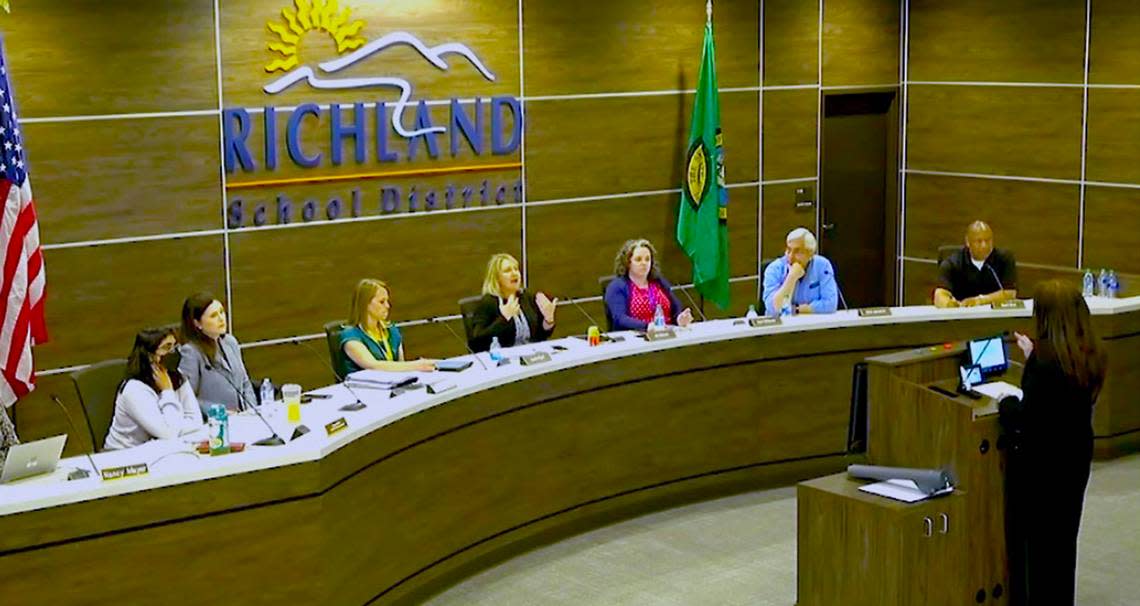
Williams said she’s still weighing a run, and it’s unclear if Bird, who’s mounting a gubernatorial run, will seek re-election to his school board post.
Public officials will file to run for office the week of May 16.
The recall group will need to collect about 5,000 signatures per board member to put their names to the recall ballot.
Recall petitions that make it to the ballot need 50% of the vote, plus 1, to oust an elected official.
In August 2021, Sheriff Jerry Hatcher was the first government official in Benton County — and the first elected sheriff in Washington state — to lose office in a recall election.
He was recalled after nearly three quarters of primary voters agreed he should be removed on allegations he violated his oath of office, tampered with evidence and intimidated and retaliated against witnesses.
Who’s among the recall group?
The four Richland voters pursuing the recall are well-known scientists, businessmen and contractors.
Brian Brendel is a Richland High School alum and president of Columbia Energy & Environmental Services, a full-service engineering and fabrication firm in the nuclear, defense, energy and hazardous waste industries.
Bradley Rew is a businessman and entrepreneur known mostly as the owner and president of Gale Rew Construction.
Anthony Peurrung is the deputy director for science and technology at the Pacific Northwest National Laboratory.
And Michael Lawrence, the influential former Department of Energy manager at Hanford, also was part of the group but he died in December from advanced pancreatic cancer.
